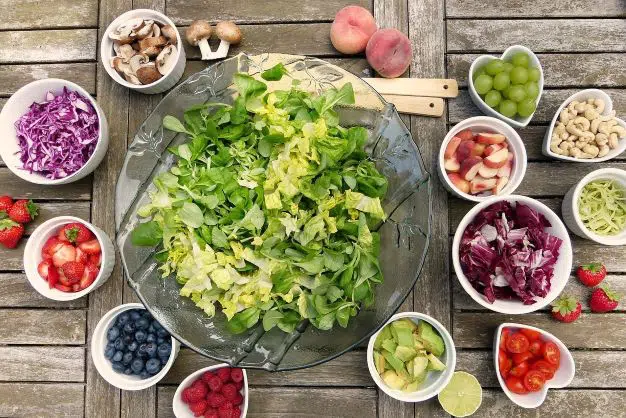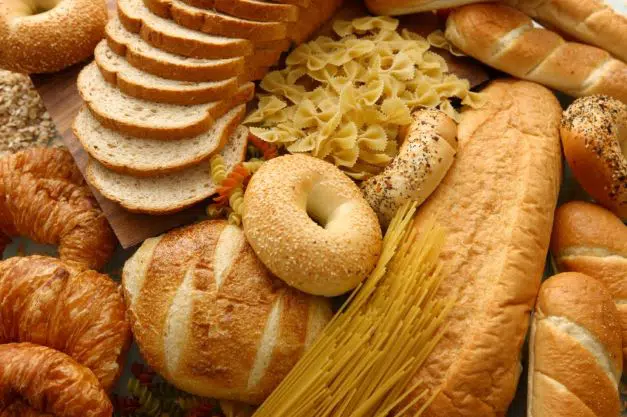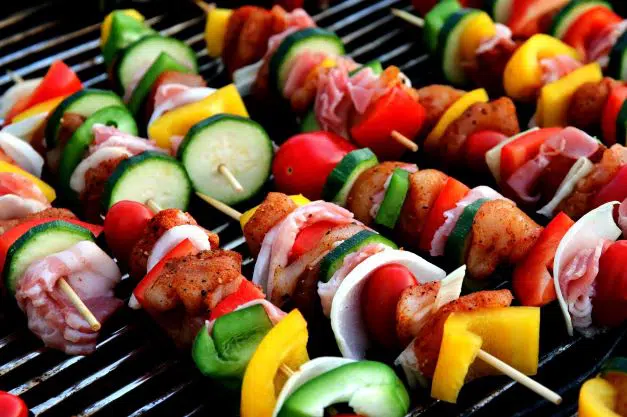Running and eating to perform at your best is a concept that is in direct competition with eating to lose weight. Regardless of your goal, you cannot eat “just anything”. What you eat is important to achieve your goals and whether you want to lose weight or run a 10k race, what you eat will help you get there.
Regular Nutrition of the Runner
Training doesn’t end when you get home, it barely begins! Depending on how it’s tweaked, a healthy and balanced diet will help you to perform better or lose weight. Follow these steps for a healthy, balanced diet:
- Choose seasonal foods, such as fresh/varied fruits and vegetables including colorful salads, to guarantee a good supply of vitamins, minerals, and fiber.
- Eat citrus fruits, because they contain Vitamin C that improves your immune system and stops oxidative damage.
- Include healthy proteins daily in good quantities. Go for lean meats, fatty fish (like salmon or tuna) and eggs.
- Eat healthy carbohydrates in proper proportions.
- Avoid pre-cooked and packaged products (they have too much sugar and bad fats).

Nutrition for running performance
Food is one key component of taking care of your body, recovery and maintaining good performance in the race. Proper nutrition for a distance runner involves considering nutrition during training as well as the day of the race. Remember that one should not try to lose weight during training and expect to break a personal record during the race. Be consistent. Remember that long-distance running has the tendency to break down muscle, so weight training and eating adequate protein is vital to maintain muscle strength for good performance.
To achieve optimal performance in an endurance athlete, they must optimize carb storage before running, sustain carb delivery during running and maintain optimal hydration before and during competition.
Before the Race or Run
The day before competition should include a higher carbohydrate meal to help you fill up your glycogen pool. This is necessary as it will be the source of energy that your body will use when running. But this does not mean that you need to pig out on a never-ending pasta bowl. Too many carbs can lead to problems of bloating as well.
You should have a light meal about 30 to 60 minutes before going for a run, but they should be low in fiber and high in carbohydrates. You need enough time to digest the carbs and absorb them to be able to use them. However, you need to be careful about eating too much to avoid an upset stomach. You should avoid eating heavier meals for at least 3-4 hours before running.
On race day, you need to eat low amounts of fat, fiber, and protein, as well as avoiding new dishes or dishes with too much seasoning.
Examples of snacks before going for a run:
- Granola bars.
- Bananas.
- Slices of bread with honey or jam.

During the Race or Run
If you are going to run long distances, the most important thing is to prioritize hydration. You can choose to bring water or an electrolyte drink. It is estimated that you will need 600 to 1000 ml of additional fluids for each hour of training. Be aware though that runners frequently train in ways that do not mimic competition, making it difficult for them to fully adapt to the competition environment. For example, the standard protocol in endurance runs is consuming beverages every 3 miles, but runners often do not practice this during training.
During endurance work, carbs are important but are a limited energy source because people have relatively low carb stores. Sports foods, such as drinks or gels, help to replenish your body’s supply of carbs during longer runs. It is important that your training for the race has included using these drinks or gels so that you are used to consuming them and avoid surprises.
Listen to your body, it is normal to feel hungry, but experiencing too much hunger while running can mean that you must adjust your diet.

After running
Do not skip meals after running as it is important to recover and renew your energy. You can choose a homemade mango and chia smoothie or an omelet with vegetables and whole wheat bread, among other options. Don’t eat too much after training to avoid an upset stomach and nausea.

Weight loss nutrition for runners
Running to lose weight is only part of the process. What you eat is more important. You can’t out-train a bad diet.
Here are some nutrition tips for running. A practical nutrition guide to lose weight while running without neglecting your general health.
Know how many calories you need. To lose weight, it is important to reduce your total calorie intake. This can be done by burning calories by running or by eating fewer calories. If you combine both mechanisms, it will be even better. In this way, your body will be forced to use the extra fat as energy, and you will lose weight. Don’t cut more than 200 to 300 calories a day. A diet that is too low in calories can cause health problems if you are exercising.
Avoid traps. You need to be careful when relying on food diary apps as people notoriously underestimate or under document calories. Many runners also tend to indulge because they worked hard, and they earned it. Liquid calories are the easiest way to consume empty calories, so beware of soft drinks and alcohol if you are watching your weight.
Keep your energy reserves charged. If you are going to run, you need extra energy. Eat a balanced diet that contains:
- 50 to 60% carbohydrates (preferably complex).
- 20 to 30% protein.
- 20 to 30% healthy fats.
Include foods rich in protein and healthy fats, such as eggs, low-fat yogurt, and oatmeal. Choose healthy snacks like nuts, fruits, and vegetables.

Train weights. When you increase muscle mass, you also increase your body’s metabolism at rest. As a result, you will burn more calories, even if you are not running.
Include foods that benefit your weight loss training.
- Avocado: rich in potassium, it helps you run more intensely and for longer. It also provides healthy fats.
- Eggs and lean meats: source of energy and protein. Including them throughout the day improves weight loss and supports muscle recovery after running.
- Walnuts. Rich in protein, fiber, and unsaturated fats. They are associated with less inflammation, greater weight loss, and longer life. But be careful, just a handful of nuts a day is enough as they have too many calories.
- Whole grains. Healthy source of carbohydrates to give you energy. In addition, they improve running performance and recovery. They also promote healthy digestion and increase satiety for longer by preventing you from overeating. Eat quinoa, whole wheat, oats, among others.
Fasted Cardio
Run on an empty stomach and take care of hydration. Training without breakfast increases the number of calories you burn by about 20%. Remember that training this way will affect your performance and should be avoided if you are trying to improve your performance.
But it is important to drink enough water. Just 1% less hydration reduces your performance and also reduces calorie burn.
References
- Burke, L. M., Jeukendrup, A. E., Jones, A. M., & Mooses, M. (2019). Contemporary Nutrition Strategies to Optimize Performance in Distance Runners and Race Walkers. International journal of sport nutrition and exercise metabolism, 29(2), 117–129. https://journals.humankinetics.com/view/journals/ijsnem/29/2/article-p117.xml
- Sogari, G., Velez-Argumedo, C., Gómez, M. I., & Mora, C. (2018). College Students and Eating Habits: A Study Using An Ecological Model for Healthy Behavior. Nutrients, 10(12), 1823. http://www.mdpi.com/2072-6643/10/12/1823
